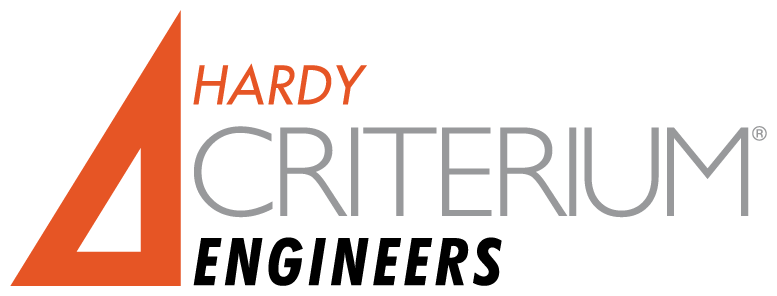
Save Energy, and Money
This article may not be for you but if it is, its message could save you thousands while improving the quality of your life. Maine has a wide range of condo and HOA communities with a variety of configurations and bylaw restrictions. This article targets owners with units where they control appliance purchases; can penetrate exterior walls with utility piping; and in some cases, have a basement. There should also be a desire to be energy efficient while saving a lot of money.
Maine is currently offering a number of energy efficient programs ranging from insulation and weatherization improvements to the introduction of solar panels and geothermal systems. This article will focus on the most successful program sector where Maine has become a national leader in the conversion to heat pumps for both hot water and heating/ cooling of homes. Governor Janet Mills recently announced the state has exceeded the 100,000 heat pump installation goal by 2025 by two years ahead of schedule. This success has resulted in a new goal of 175,000 more heat pump installations by 2027. This new program is being funded by the Inflation Reduction Act providing $71.6 million in home-energy-rebate funding to the state.
Complimenting Maine’s success is the Federal tax credit program providing up to $3,200 per year tax credits for heating, ventilation, and cooling (HVAC) efficiency upgrades covering insulation ($1,200); energy audits ($150); windows ($600); and exterior doors ($500). There has been some confusion in the past about whether these rebate programs are only available to traditional homeowners, but they are also available to many condominium unit owners. Condo unit owners interested in participating in these programs should start by visiting the Efficiency Maine website (EfficiencyMaine.com) or calling this quasi-government agency’s office to learn about eligibility for the many programs available.
Efficiency Maine offers rebates for efficiency upgrades up to $8,000. Some rebates are based on household income levels e.g., Low ($8,000); Moderate ($6,000), and Any ($4,000). Many programs are not income related such as the clothes washer rebate of $50 for any Energy Star certified washer. It should be noted that based on the average household washer loads of three hundred per year, the Energy Star equipment uses 20% less energy and 30% less water while saving over $550 over the lifetime of the unit. Similarly, there are instant rebates of $1,000 available for installed certified appliance units from many dealers and big box retailers.
The conversion to a heat pump hot water heater from the typical electric, propane, or oil-fired hot water heater is not only more energy efficient but also provides the added benefit of acting as dehumidifier. Unlike an air conditioner moving heat from the home’s interior to the outdoors, a heat pump moves the room’s heat into the water tank. They can save $500 per year on electricity while having a 10-year warranty vs. the 5-year warranty provided on traditional water heaters. Heat pump water heaters are hybrid systems as they have traditional electric resistance heating elements for times when demands exceed the heat pump’s capacity.
For households using low volumes of hot water daily, an efficient alternate to a heat pump water tank is a tankless system sometimes called ‘instantaneous’ or ‘on-demand’ systems where water is heated as it exists the appliance thus avoiding the passive loss of energy of hot water sitting in a tank. The U.S. Department of Energy estimates demand water heaters are 24% to 34% more energy efficient than conventional storage tank water heaters.
Keeping Cool
Many Maine condominium units do not have any form of air conditioning except for window units. After surviving this past summer’s record heat conditions, good air conditioning is no longer a luxury but necessary for healthy living. Adding air conditioning to an existing Maine condo unit can present challenges and will require thorough research, but it will be worth it. Here again the first step in your research is to check with Efficiency Maine on installing a heat pump HVAC system to provide both cooling and heating for your unit.
The system selection may be determined by the physical location of your unit and the restrictions governing structural changes or penetration of common walls. For this reason, ‘ductless’ or ‘mini-split’ systems may be the answer. Mini-splits comprise two main components, namely, an exterior compressor/ condenser unit and interior air-handling unit. These units are connected by a conduit containing the refrigerant tubing; suction tubing; condensate drain line; and power cord.
The new mini-splits chief advantage is their diminutive size and their ability to heat and cool individual rooms or a network of up to four rooms allowing flexible zoning. Keep in mind a mini-split system uses electricity to move heat from the outside to the inside or the reverse. It does not use electricity to create heated or cooled air, resulting in heat pumps producing four times as much energy as they consume.
The slightly higher costs of retro-fitting a mini-split compared to a more traditional central air conditioning system is usually offset by the much lower operating costs and available rebates and financial incentives available not to mention the increase in market value of an air condition condo unit. A mini-split equipment package cost ranges from $1,600 for a small single zone system to $4,500 for a 3-zone system. The new mini-splits are now suitable throughout Maine and able to run at full capacity even at below zero outdoor temperatures.
As the winter approaches, now may be the time to plan for next summer’s heat wave and invest in a ductless air conditioning system. A modern heat pump system may also help to moderate the home’s interior temperature swings from watching too many election debates and speeches.
Written by Jack Carr, P.E., R.S., LEED-AP, Senior Consultant Criterium Engineers
Published in Condo Media
